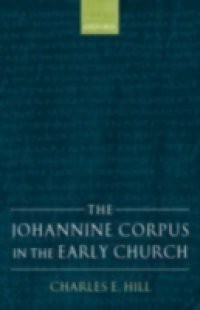How were the Johannine books of the New Testament received by second-century Christians and accorded scriptural status? Charles E. Hill offers a fresh and detailed examination of this question. He dismantles the long-held theory that the Fourth Gospel was generally avoided or resisted by orthodox Christians, while being treasured by various dissenting groups, throughout most of the second century. Integrating a wide range of literary and non-literary sources, thisbook demonstrates the failure of several old stereotypes about the Johannine literature. It also collects the full evidence for the second-century Church's conception of these writings as a group: the Johannine books cannot be isolated from each other but must be recognized as a corpus.

